What is Electrical Conduit?
An electrical conduit is a piping system used to carry electrical wiring in domestic, commercial, and industrial use. The purpose of conduits is to protect the enclosed wiring from fires, mechanical damages, and corrosion.
Conduits protect electrical wires as well as any individual who come in close proximity to electrical wires.
These are available in different sizes with accessories such as junctions, clamps, bends, T- shapes, C-shapes, L-shapes, etc.
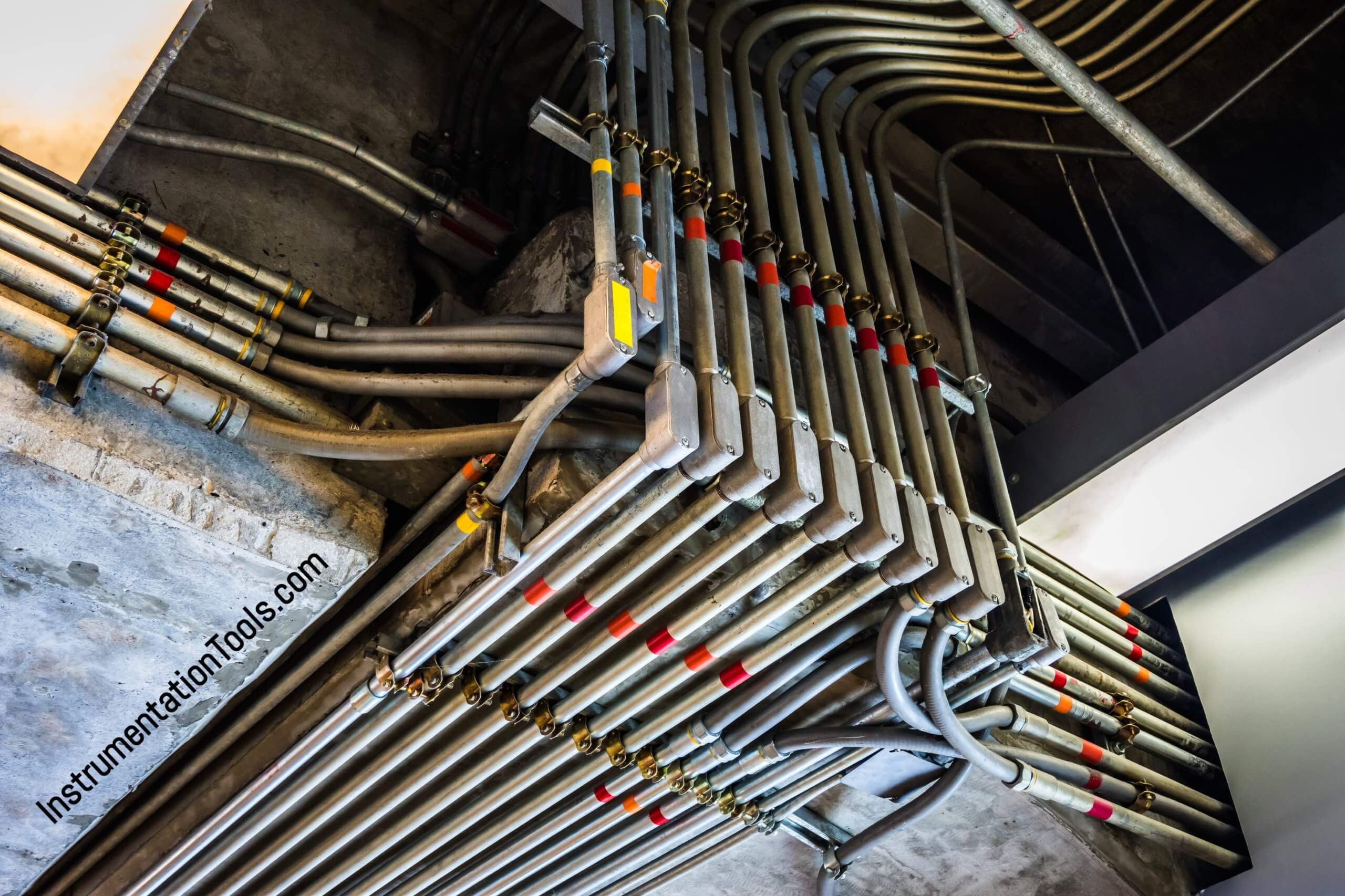
Types
Electrical conduits are basically divided into two types
- Metal
- Non-metal
Electrical Metal conduits
- Electrical Metal Conduit (EMC)
- Flexible Metal Conduits (FMC)
- Rigid Metal Conduit (RMC)
- Intermediate Metal Conduit (IMC)
- Liquid-tight Flexible metal conduit (LMC)
There are various types of metal and non-metal conduits are available in the market, we discuss seven types only which are used for residential, commercial, and industrial application purposes.
1. Electrical Metal Conduit (EMC)
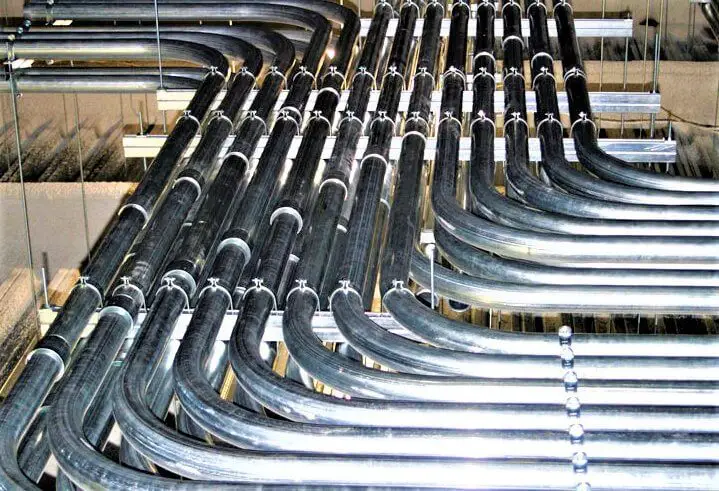
EMC is a thin wall conduit that is far the widely used nonflexible conduit.
Except for situations where it will be subject to severe physical damage, it may be and is used in almost all places where rigid conduit may be used.
It may be used in exposed or concealed in or on walls, floors, or ceilings. It can be embedded in the concrete or buried in the ground.
Advantages:
- It is preferable to use rigid conduit as it is much lighter, thus easier to handle.
- It is easier to cut and ream.
- Bending to follow various complicated forms is quite easy with the smaller diameters.
- These are thin wall circular cross-sections, are galvanized outside for corrosion protection, and the inside has a corrosion-resistant organic coating.
Applications:
- Used in residential, commercial, and industrial construction.
2. Flexible Metal conduit (FMC)
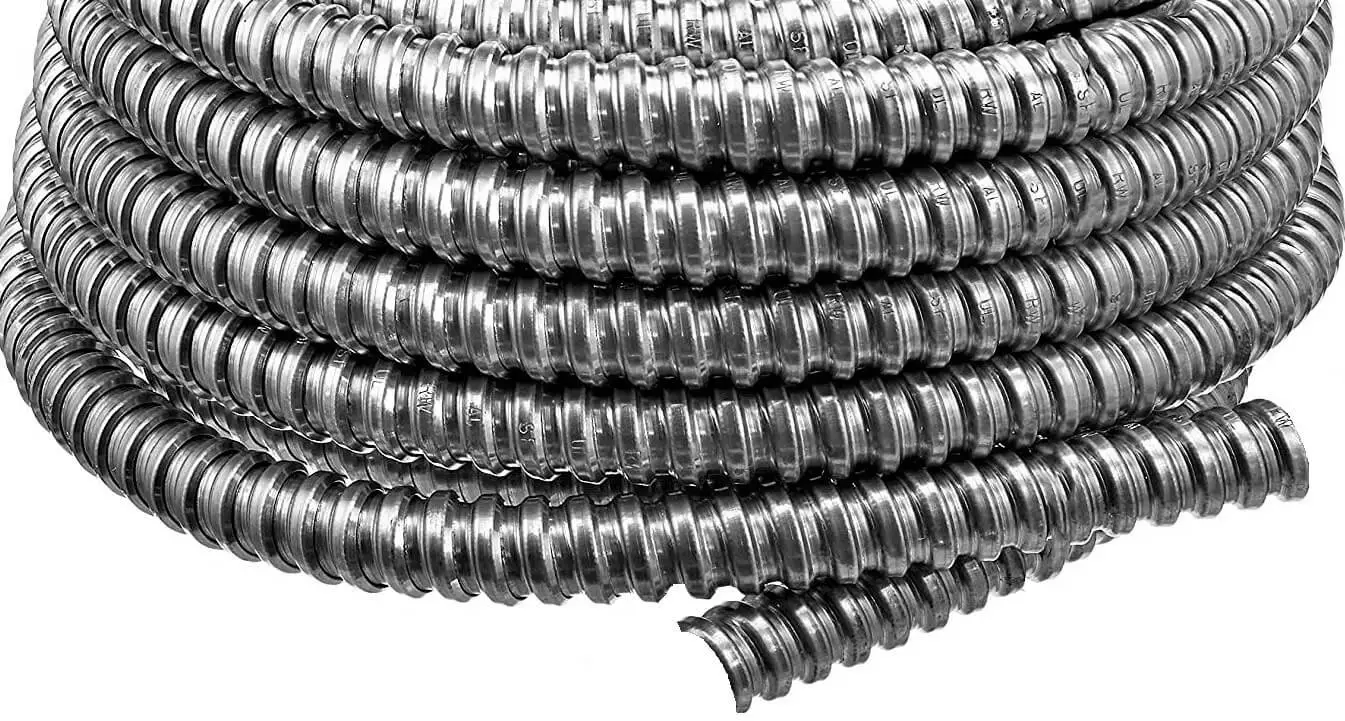
Flexible Metal conduit (FMC) is used wherever good flexibility is required due to movement or vibration of equipment, or where bends and offsets would be difficult with rigid conduit.
To meet various physical or chemical requirements, flex is made of galvanized steel, aluminum, brass, or bronze.
Advantages:
The flexible metal conduit cannot be used in wet locations unless conductors are of the lead-covered type or of another type specially approved for the conditions.
Disadvantages:
Flexible metal conduit not intended for general purpose raceway for long-distance.
Applications:
The flexible metal conduit can be used for lighting fixture connections, above suspended ceilings.
3. Rigid Metal Conduit (RMC)
Rigid Metal Conduit (RMC): Both ferrous and non-ferrous metals as a rigid metal conduit, in practice, galvanized pipe is generally used-the same type galvanized pipe commonly found in water supply and gas lines. As always the use of pipe smaller than ½” trade size is not allowed.
They are similar in appearance to water pipes and are threaded at both ends.
Advantages:
- It is much lighter and convenient to handle.
- It can be used in severe corrosive areas.
Disadvantages:
when it is cut, all cut ends must be reamed to remove any rough edges, if any rough edges are left, they are likely to tear the insulation when insulated conductors are pulled through.
Applications:
It is used in outdoor applications and provides structural support for electrical cables.
4. Intermediate Metal Conduit (IMC)
This type of conduit is heavier than Electrical Metal Conduit (EMC) and lighter than Rigid Metal Conduit (RMC). This is a thicker metal conduit making it is a great choice for outdoor applications.
The conduit pipe has to be supported at no longer than 10 feet of interval. This type of conduit has a straight length of 10 feet, with one coupling and both ends threaded. All rough edges must be smoothened when the conduit is cut.
Advantages:
It can be used on the earth or in corrosive locations.
The smooth interior of the pipe makes it easier to pull the cable through the conduit.
Applications:
- Used in exposed runs to and from exterior service panels.
- It can be used as an equipment grounding conductor with its fittings.
5. Liquid Tight Flexible Metal Conduit (LFMC)
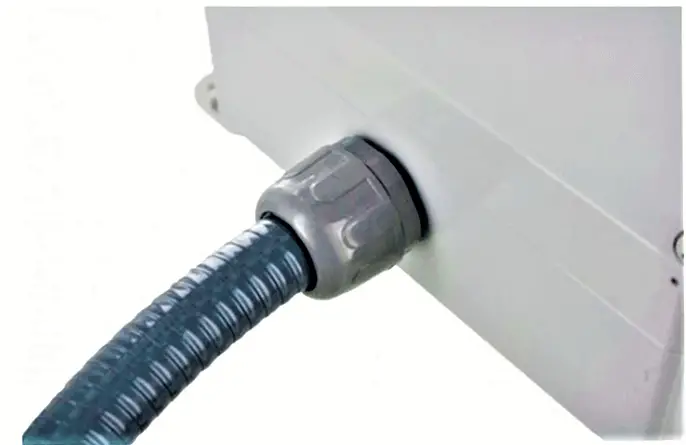
Liquid-tight is another type of spiral flexible metal armor and an outer plastic jacket has been added, that plastic being both liquid-tight and sunlight resistant.
Liquid-tight carries no marking for wire size, insulation, or voltage rating because wires must be pulled as needed.
The difference between flexible metal conduit (FMC) and Liquid-tight flexible metal conduit is that PVC coated on LFMC.
Its use in residences is quite limited. It is generally used in short runs for wiring outdoor air conditioning equipment or for wiring disposals under kitchen sinks.
The sizes of liquid tight metal conduit must be electrical trade sizes ½ inch to 4 inches, inclusive.
Advantages:
- Provides good protection from entry of water, Oil, dust, etc.
Applications:
It is used in short runs for wiring outdoor air conditioning equipment or for wiring disposals under kitchen sinks. Its use in residence is quite limited.
Non-Metal Conduits
For use above ground, this conduit must be flame retardant, tough, and resistant to heat, sunlight, and low-temperature effects.
1. Non-metallic conduit (NMC)
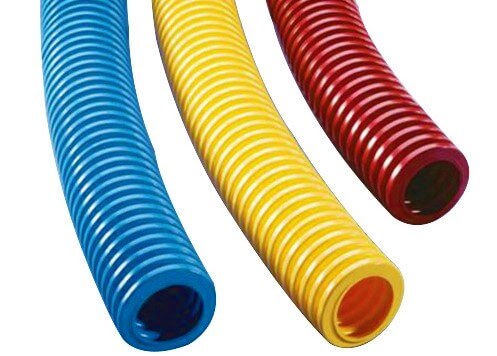
Non-metallic conduit is common both in rigid and flexible conduits. They are usually made of PVC.
Available in various colors such as Blue, Yellow, Red in the market.
Advantages:
- Easy to install.
- Lightweight, hand bendable.
- Resistant to corrosion and good protection from moisture ingress.
Applications:
- Available in long lengths, convenient for laying cables such as Ethernet, Fiber optic.
2. Rigid Polyvinyl Chloride (Rigid PVC)
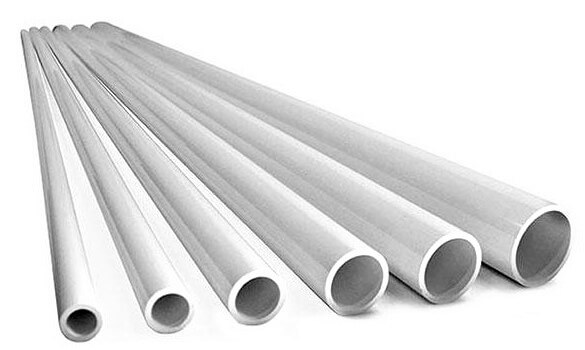
This is the most popular type of non-metallic conduit has several advantages.
PVC conduits are used for electrical wires that may be required to run under the ground or in an open environment that is exposed to air, dust, and water.
Advantages:
- Lightweight.
- Typically less expensive than other options,
- Versatile and easy to install available in a variety of wall thicknesses.
Disadvantages:
PVC conduit is not recommended for use in areas of direct sun exposure. Sunlight can break down the material over time.
Applications:
- It may be used in wet locations and has good resistance to many highly corrosive chemicals.
- It is absolutely waterproof, thus ideal for wet areas in industrial and commercial structures.
Source: Electrical Estimating Methods by Wayne J DelPico.
Read Next:
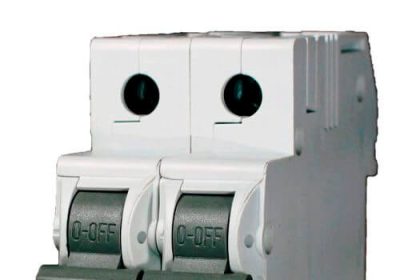
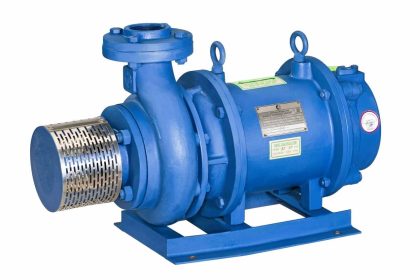
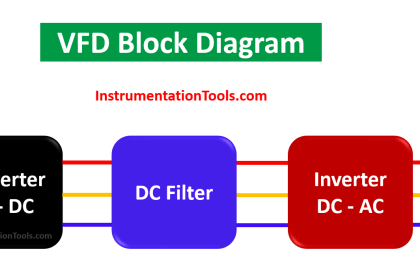
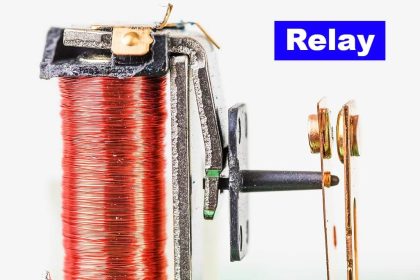
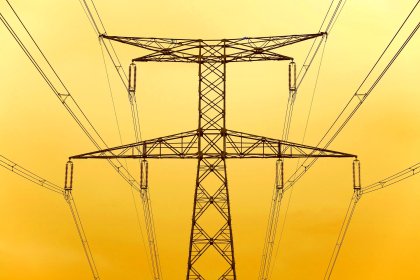

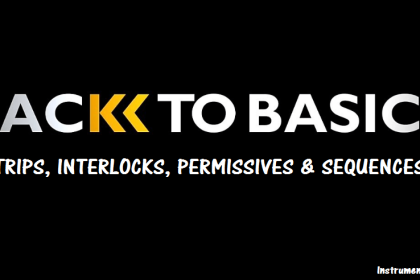
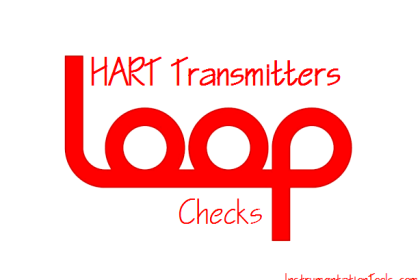

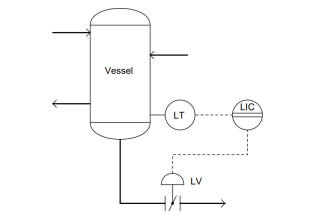
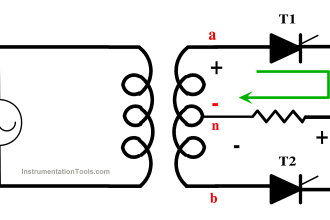
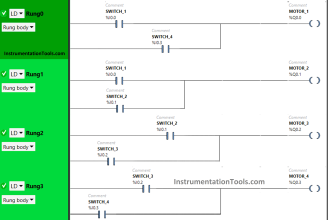

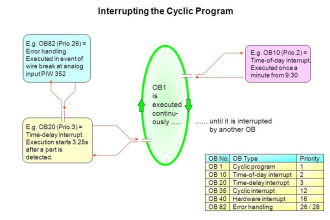
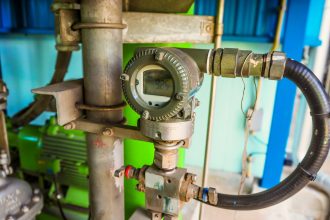

While selecting Electrical conduits, I used to do a lot of search in Google, but this article made me to precise information.
I believe EMC is now called EMT. They call it tubing not conduit in the recent books.
Good